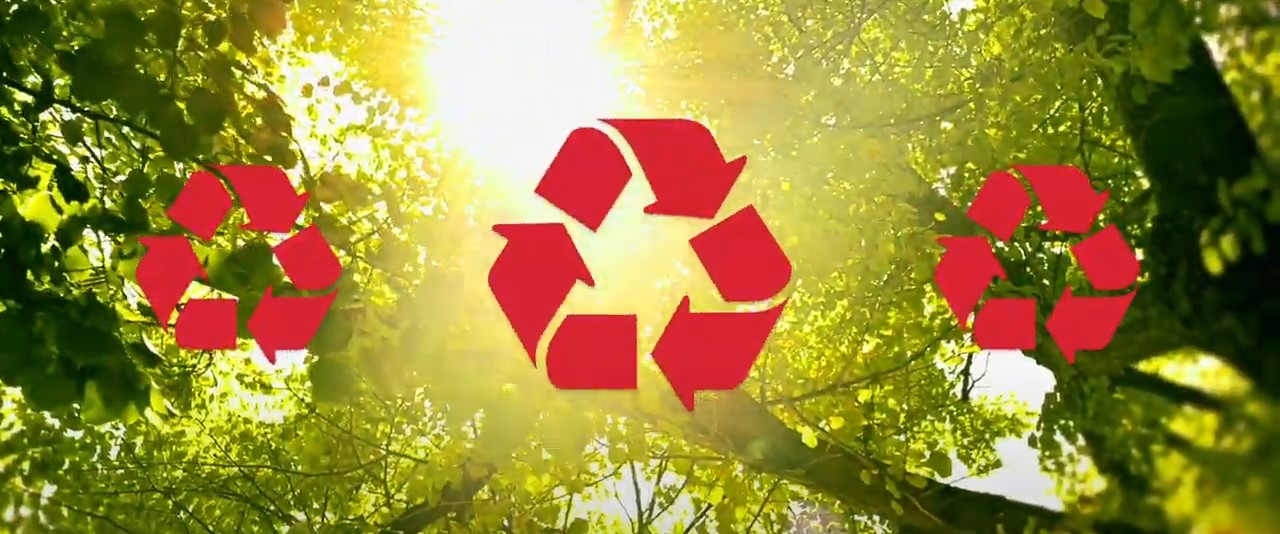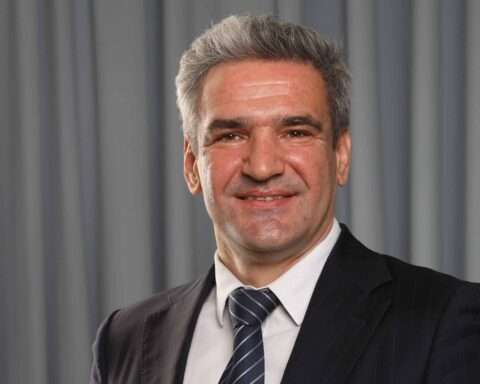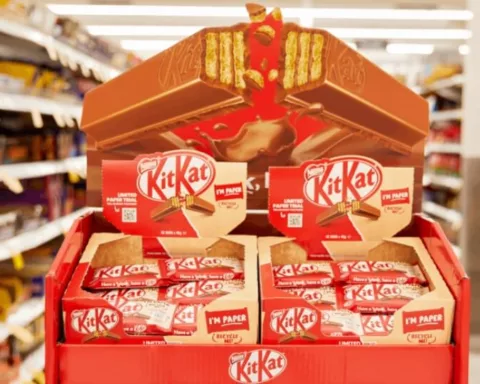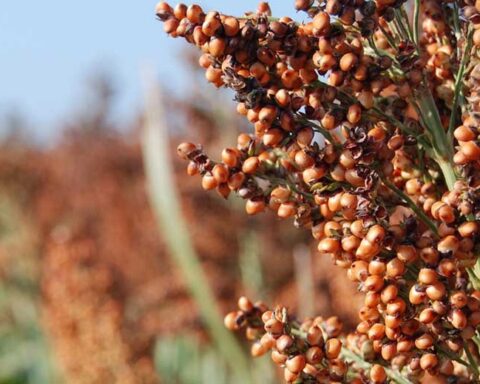The novel water bottles are designed to function just like traditional plastic bottles but with much less plastic.
The first innovation is the Vittel® GO system which consists of a reusable hard protective case designed to hold 50cl refills of Vittel® natural mineral water that are made with 40% less plastic than a traditional 50cl Vittel® bottle. Because the bottles are made with as little recycled plastic as possible, they are very flexible and light, which means they must be used with the reusable protective case to make it easy to drink the water.
The second packaging innovation is a 100% recyclable 1-liter Vittel® Hybrid bottle that is made from two types of materials. It opens up new possibilities for the development of the next generation of water bottles.
The first material is an ultra-thin plastic bottle made entirely from recycled content. It uses two times less plastic than a classic 1L bottle. The plastic layer is surrounded by a fiber-based material made from 100% recycled cardboard and old newspapers. Proprietary technologies enable the plastic and fiber-based layers to be locked together to create a functional, sturdy water bottle that can be easily used without any damage. Nestlé packaging experts are currently developing a tearing system which allows consumers to easily separate the paper and plastic components for recycling when the hybrid bottle is empty.
The new packaging innovations were developed by experts at Nestlé’s research and development center for Waters in Vittel, France who received special funding from Nestlé’s internal R&D ‘Shark-Tank’ initiative. To develop the hybrid bottle, the experts worked in collaboration with Ecologic Powered by Jabil, a Californian start-up that specializes in eco-design of packaging.
Both the Vittel® GO and Vittel® Hybrid water bottles will be available for consumer testing in France in July. These two innovations are part of the company’s continuous efforts to introduce novel packaging materials to help Nestlé reduce its use of virgin plastics by one third by 2025.






